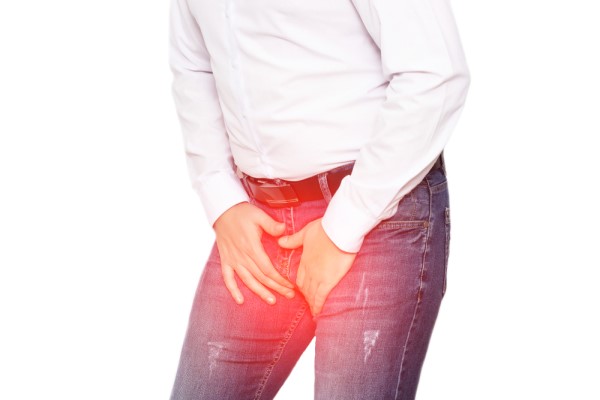What Causes Male Pelvic Pain?

If you feel pain between your navel and groin, this is pelvic pain. It could be caused by urinary tract infection, STD or prostatitis. Prostatitis is an inflammation of your prostate. If you have pelvic pain, do not feel alone. Many men suffer from this problem throughout the world.
Causes of pelvic pain
Pelvic pain can sometimes happen with other symptoms. Treatments can vary depending on the root cause of the pain. Therefore, it is necessary for patients to receive a full checkup if suffering from pelvic pain.
Urinary tract infection
UTI is when the patient has an infection in the urinary tract, including the bladder, ureters, urethra and kidneys. UTIs are common and can have other symptoms besides pelvic pain. These can include a burning sensation when the patient urinates, frequent urination, discolored or foul-smelling urine, chills or fever and pain in the sides or lower back. Doctors will treat UTIs with antibiotics.
Hernia
Pelvic pain accompanied by pain in the patient’s lower abdomen could indicate a hernia. A hernia will develop when a piece of intestine or tissue pokes through a weakened area in the muscle. It can form a painful, small bulge.
The pain may worsen when the patient strains the muscles by lifting heavy objects, coughing or laughing. General or laparoscopic surgeons will treat hernias to prevent further complications.
Appendicitis
The appendix is a small organ located on the right side of a patient’s body. Inflammation in the patient’s appendix can cause pelvic pain. Other symptoms may include fever, nausea and vomiting, loss of appetite and swelling in the patient’s lower abdomen.
If a patient experiences pelvic pain along with a sharp right pain in the lower abdomen, then they should seek medical attention as soon as possible. Surgery may be recommended.
Urinary stones
Urinary stones can form from a buildup of salt and minerals in the urine that a patient’s body cannot get rid of. Minerals, such as calcium, can clump together and turn into urinary stones. The stones usually only cause symptoms when the patient is trying to pass them. Pain in the pelvis and lower back is usual. Other symptoms include difficulty passing urine and blood in the urine.
Doctors might recommend pain medication for passing the stones. Other medicines can help break up the stones so passing them is easier. Large stones may sometimes require surgery to be removed.
Benign prostatic hyperplasia (BPH)
When a patient has an enlarged prostate gland from something other than cancer, BPH occurs. When the patient’s prostate is expanding, it will put pressure on the urethra. This may cause issues with urination and cause pelvic pain. The bladder muscles can weaken from the extra strain and cause an increase in symptoms. A doctor may recommend the patient change their lifestyle, try specific medications or undergo surgery.
When to see a doctor for pelvic pain
Though you might have occasional pelvic pain, it is important to see your doctor if you are unclear about the cause. Even if you know what is causing the pain, any changes in intensity or regularity may be a reason to see your doctor for a thorough evaluation.
Request an appointment here: https://eckhardtobgyn.com or call Donald Eckhardt Jr., M.D. , Kari Eckhardt W.H.N.P., C.N.M. at (281) 516-9441 for an appointment in our Tomball office.
Check out what others are saying about our services on Yelp: Pelvic Pain in Tomball, TX.
Recent Posts
Getting ready to welcome a child into the world is one of life's most meaningful experiences. Many expectant parents today choose to work with a midwife for prenatal care and labor support because midwives focus on personalized, patient-centered care. A midwife is a trained healthcare professional who provides comprehensive services throughout pregnancy, birth, and postpartum recovery.A…
Menopause is a natural transition in a woman's life, typically occurring between the ages of 45 and 55. Women's health services help you manage menopause-related symptoms and challenges while supporting your overall well-being. While it is important to remember that menopause is a biological milestone, it can impact your cardiovascular health, bone density, and mental…
OBGYN, or an obstetrics and gynaecology doctor, visits support lifelong reproductive health, and the right questions turn short appointments into clear decisions. Preparation reduces anxiety and improves outcomes. This guide provides practical and respectful prompts for preventive care, pregnancy planning, and symptom evaluation. Shared decision-making grows stronger when patients engage with the OBGYN as a…
A gynecologist may suggest incontinence surgery when a patient's loss of bladder control is interfering with daily life. Urinary incontinence is relatively common in older adults, according to the Mayo Clinic, and it can be a normal symptom of aging. It is important to speak to a qualified gynecologist if the symptoms are becoming too…


